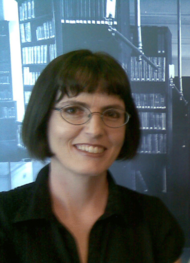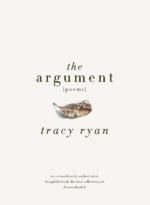AUTHOR INTERVIEW: Tracy Ryan

Get to know a little more about Tracy Ryan.
Tell us about the genesis of The Argument
I was reading the letters of Heloise and Abelard, who were real-life lovers in the 12th century and horribly separated, eventually becoming a nun and a monk. He urges her to renounce their former love, a very physical affair; she argues for hanging on to every detail! The argument between them seemed very much a tussle between an earthy zest for life and a resigned, spiritual death-wish. I wrote a sequence of poems about them, and then started to see other areas in which similar themes cropped up, and the book took off by itself.
Referring to the book’s title, Dennis Haskell has said that your “‘argument’ is argument in the older sense of the word, a discussion of the self with the larger whole …”. What does the collection’s title mean to you?
For me, it’s primarily the argument with death, or the argument between the life-urge and the death-wish that you find in the natural world as well as in cultural expression. We know where we are headed; we don’t like to believe it most of the time, and I think the “arguments” we put up against it are energetic and impressive. Eros and thanatos: not as separate as we might think. So there are poems of profusion, abundance, life and love, alongside poems of decay, night, phobia, renunciation. And linking them, motifs of fire (which can belong to both) and ice (likewise)…
You have been publishing award-winning poetry for nearly two decades. In what ways has your poetry changed over time?
I started writing mostly very sparse lyrics of short lines. Now that’s less often the case: I like a more expansive line. Probably many of the themes are similar, but perhaps looked at differently as I’ve aged. Mostly I don’t look back over long-past work, so it would be for readers to say!
You are also the author of three novels. What is the process for you in deciding whether to render content into verse or prose?
The idea tends to come ready-made as one or the other. I don’t generally write narrative poetry, so if I get a narrative-shaped idea, it will become a novel. Probably with short stories there would be more overlap (a short story can have the image-like concision of a poem) but I almost never write short stories. Either I have a long, narrative-shaped idea, or a poem-idea.
Do you write your poetry with a particular type of reader in mind?
No, although I suppose I assume they already like to read poetry, or are willing to approach it on its own terms, rather than expecting it to be expository and prose-like. Having said that, I don’t think my poems are particularly inaccessible or difficult.
JRR Tolkien famously wrote in 1955 that ‘cellar door’ is generally thought of as ‘beautiful’, or euphonic. What is a word or phrase that you consider beautiful and why?
Beauty (with words as with anything else) is a subjective thing, and I don’t believe words or phrases can be isolated like that.
It’s like the way some people believe certain languages “sound beautiful” and others “sound ugly”. To me, that’s a myth, and reflects more about the person’s subjective associations with the language and culture, than about anything factual.
You can create relative euphony in a poetic line, but it will not be perceived that way by everybody. Also, words are pronounced in many different ways by speakers of the same language. (“Cellar door” will sound different in Scotland, Australia and Singapore…).
But I do enjoy clever puns, tongue-twisters and verbal wit, even if that’s not “beauty”.
What projects – writing or otherwise – are you currently working on?
There are always poems going on. I’ve also finished writing a psychological suspense novel, and am planning out another novel. Also I’m constantly engaged with translating poetry (from French and from German); I love that process.



